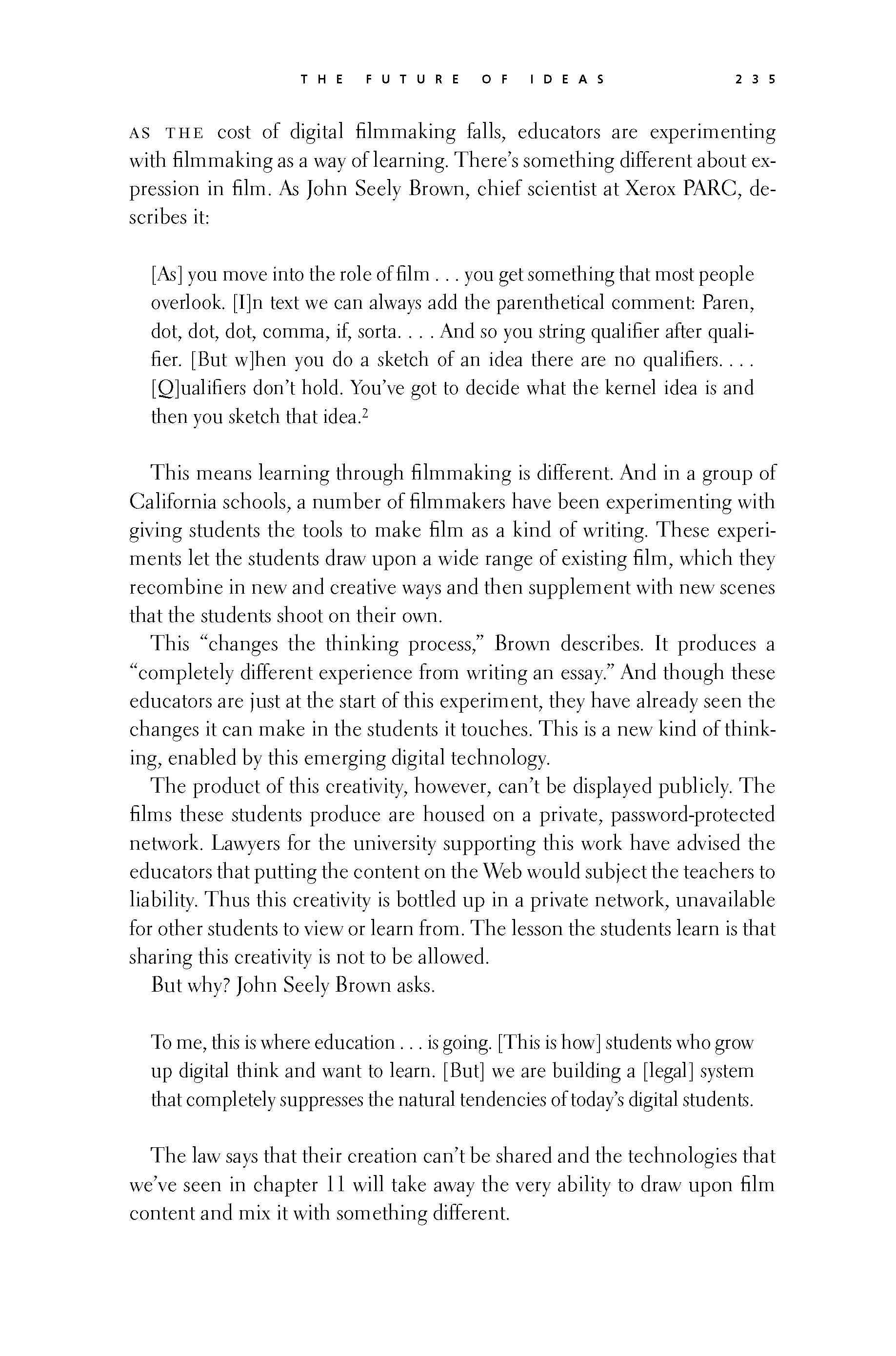 p234 _
-chap- _
toc-1 _
p235w _
toc-2 _
+chap+ _
p236
p234 _
-chap- _
toc-1 _
p235w _
toc-2 _
+chap+ _
p236
///\\\
As the cost of digital filmmaking falls, educators are experimenting
with filmmaking as a way of learning. There's something different about ex-
pression in film. As John Seely Brown, chief scientist at Xerox PARC, de-
scribes it:
____ [As] you move into the role of film... you get something that most people
____ overlook. [I]n text we can always add the parenthetical comment: Paren,
____ dot, dot, dot, comma, if, sorta... And so you string qualifier after quali-
____ fier. [But w]hen you do a sketch of an idea there are no qualifiers...
____ [Q]ualifiers don't hold. You've got to decide what the kernel idea is and
____ then you sketch that idea.[13-2]
This means learning through filmmaking is different. And in a group of
California schools, a number of filmmakers have been experimenting with
giving students the tools to make film as a kind of writing. These experi-
ments let the students draw upon a wide range of existing film, which they
recombine in new and creative ways and then supplement with new scenes
that the students shoot on their own.
This "changes the thinking process," Brown describes. It produces a
"completely different experience from writing an essay." And though these
educators are just at the start of this experiment, they have already seen the
changes it can make in the students it touches. This is a new kind of think-
ing, enabled by this emerging digital technology.
The product of this creativity, however, can't be displayed publicly. The
films these students produce are housed on a private, password-protected
network. Lawyers for the university supporting this work have advised the
educators that putting the content on the Web would subject the teachers to
liability. Thus this creativity is bottled up in a private network, unavailable
for other students to view or learn from. The lesson the students learn is that
sharing this creativity is not to be allowed.
But why? John Seely Brown asks.
____ To me, this is where education... is going. [This is how] students who grow
____ up digital think and want to learn. [But] we are building a [legal] system
____ that completely suppresses the natural tendencies of today's digital students.
The law says that their creation can't be shared and the technologies that
we've seen in Chapter 11 will take away the very ability to draw upon film
content and mix it with something different.
[[235]]
p234 _
-chap- _
toc-1 _
p235w _
toc-2 _
+chap+ _
p236